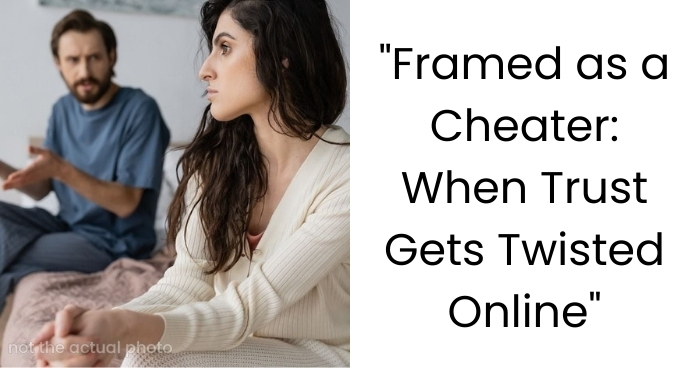‘AITA for ‘critiquing’ my partner’s post about me when discussing the responses?’
From the outset, you openly declared to your partner (P) that you had a history with your friend (F). You were aware of P’s discomfort so you consciously made an effort to build trust — reducing your time spent with F and informing P whenever you interacted. Many years later, when F contacted you, you were once again open but asked P before you agreed to the meeting.
So rather than confronting their feelings with you, P wrote something in a support forum for problem partners. That said, the manner in which they framed the situation was pretty deceptive with their strong bias—making it sound like your wish to reconciliate with F came “out of nowhere’, and presenting F as if she was being downright rude when she was just being jokey in a group. P showed you that the forum called you a cheating villain, which was not surprising, and when you observed the particulars of how the wording drives the responses and mentioned it, he got angry.
Read for more info Reddit
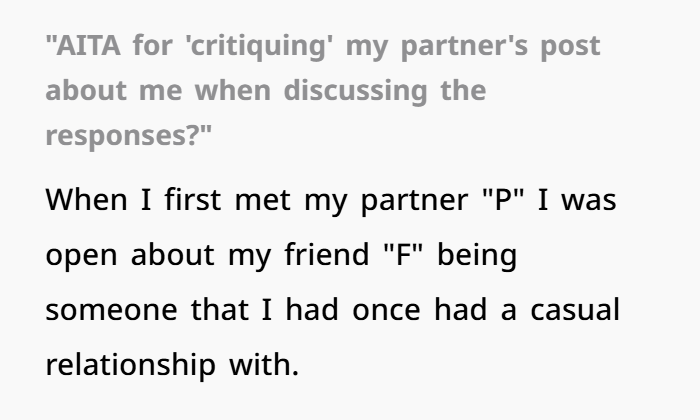
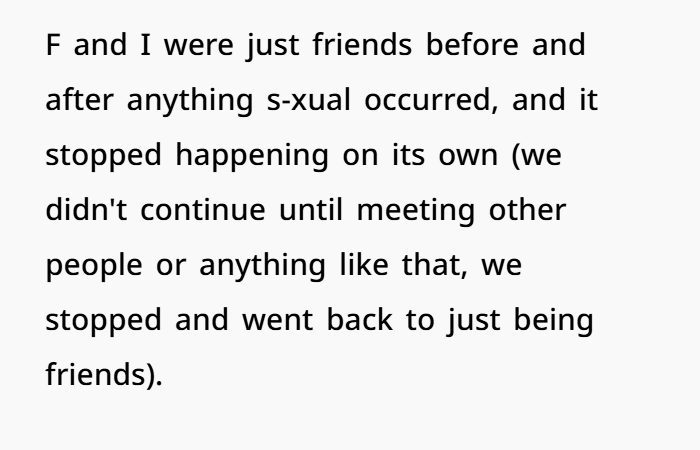

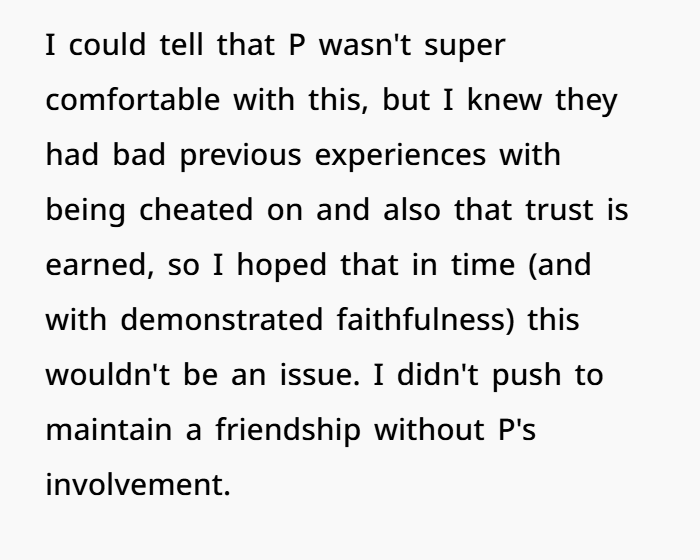


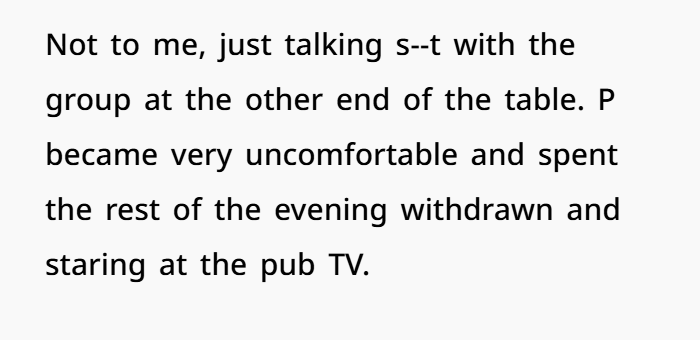
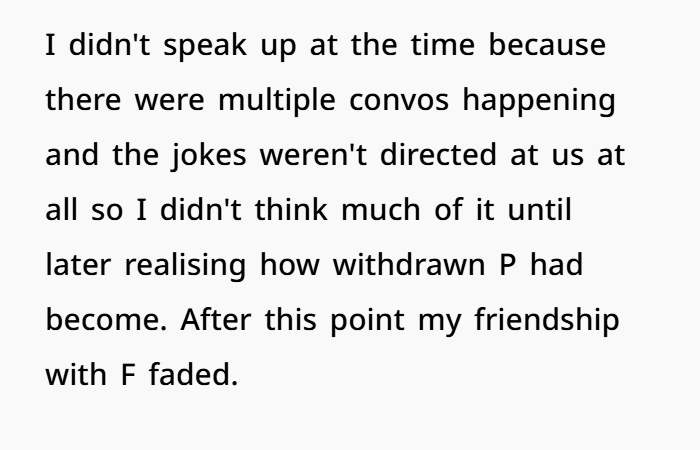

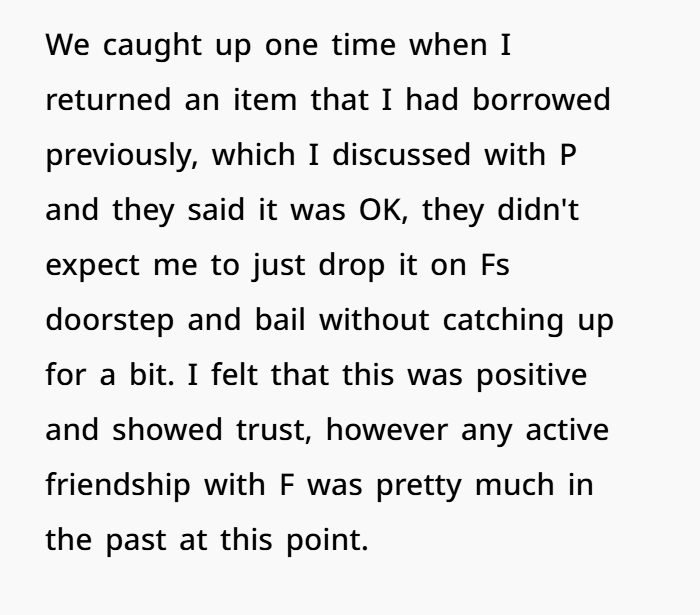
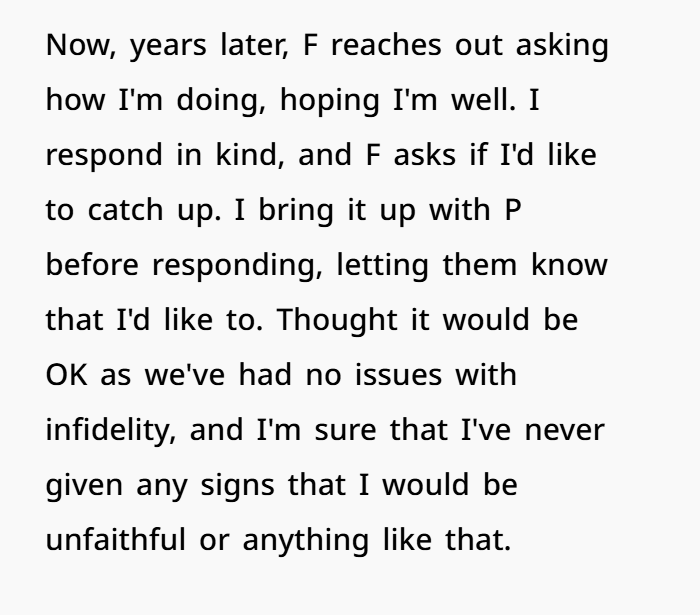
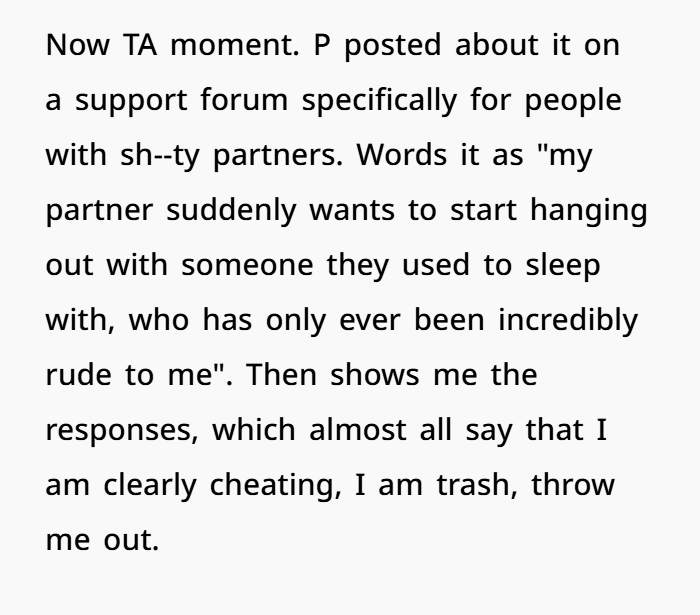
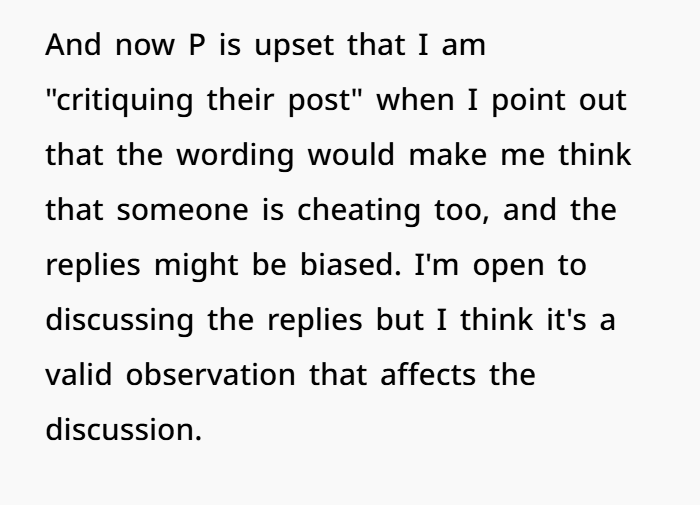
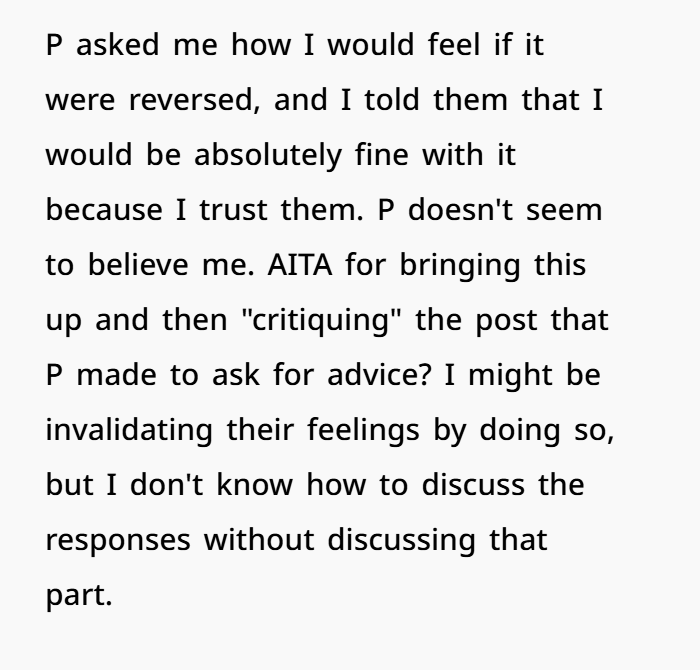
P’s reaction is not uncommon in relationships where past trauma (such as infidelity) has left emotional scars. Even if you’ve done nothing to betray trust, anxiety can lead partners to interpret situations in the worst possible light. The problem here is that instead of expressing their concerns to you directly, P sought validation from a forum known for biased perspectives—essentially an online echo chamber.
Support forums can be helpful, but they also tend to amplify the perspective of the person posting. Studies on confirmation bias suggest that when individuals seek advice in emotionally charged situations, they often frame their narratives in ways that align with their own fears or frustrations (Nickerson, 1998). By portraying you as someone suddenly reconnecting with a former sexual partner and omitting key context—such as your transparency and history of faithfulness—P created a post that almost inevitably led to one-sided, reactionary responses.
This raises a larger issue: is seeking support online always productive? A 2019 study on online relationship forums found that people often reinforce each other’s worst assumptions, leading to more distrust rather than constructive problem-solving (Holtzman et al., 2019). While venting can feel validating, it can also fuel misinterpretations and escalate conflicts instead of resolving them.
The internet had a lot to say in response.
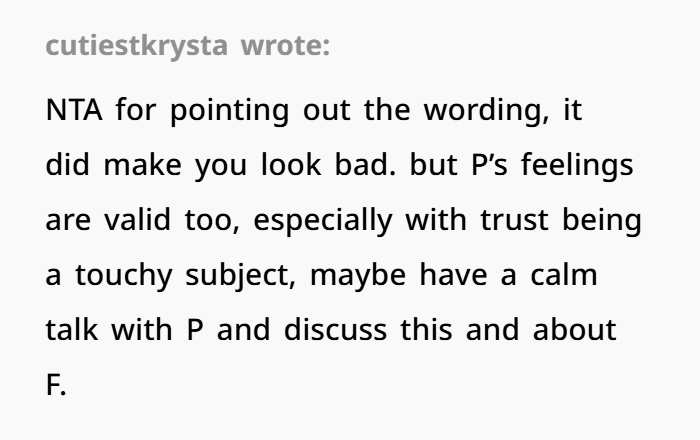
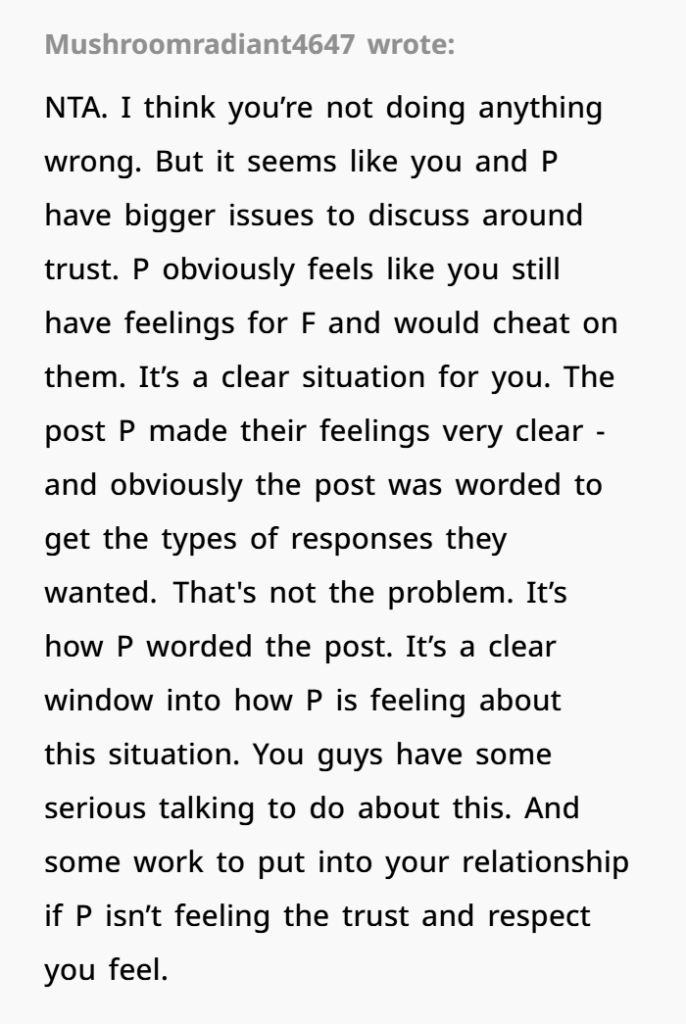

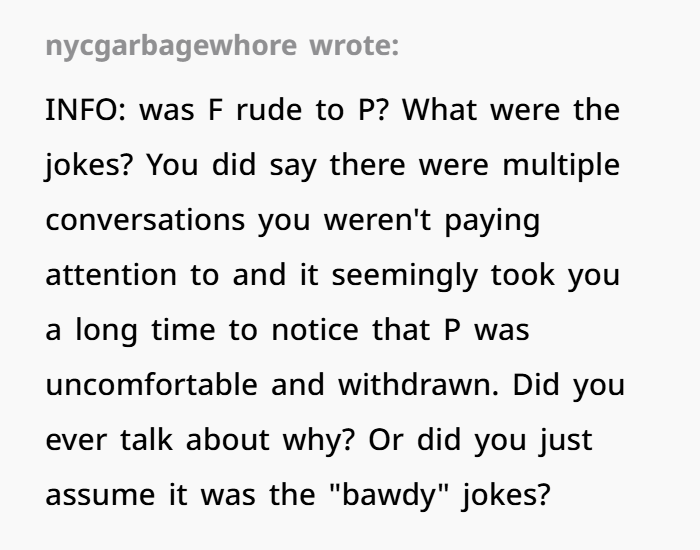
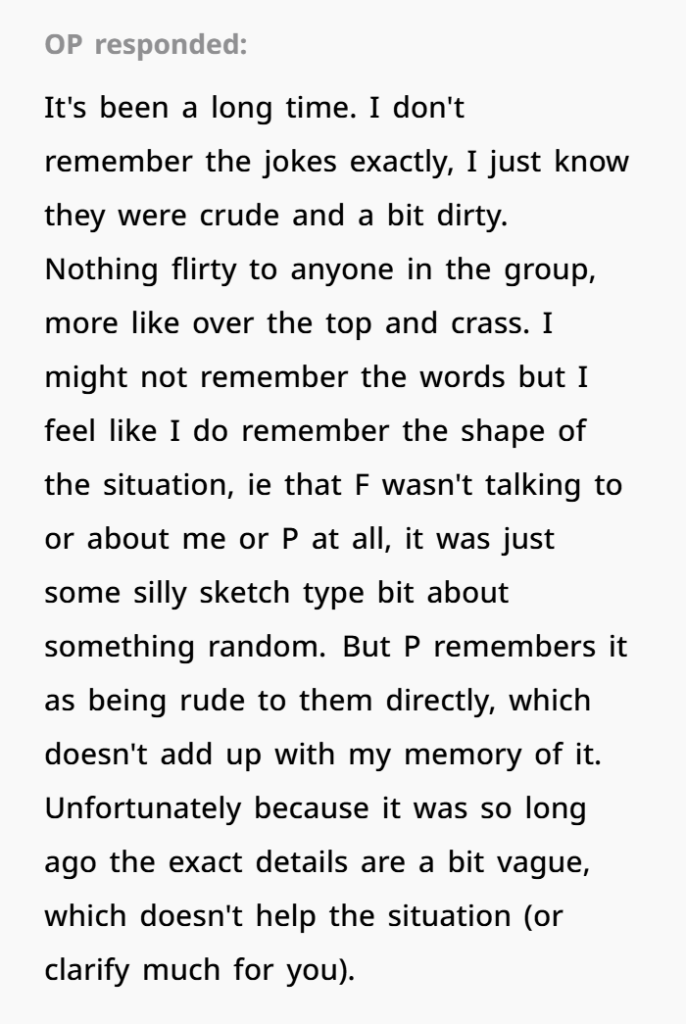
Looking closely at your comment, you did not invalidate P’s feelings — you called out the framing of the situation in the comment, which was actively distorting reality. However, there are worlds of difference between identifying a partner’s insecurity and agreeing to be treated unjustly. Your criticism wasn’t an attack — it was a reasonable deduction that biased wording had led to the responses.
In fact, F is not the real problem, the problem is P’s management of trust. Instead of working their feelings out with you, they found validation outside in a place that provided confirmation to their fears. Doing so is a more significant challenge than you getting back in touch with someone you used to know.
You are not being an A-hole for saying how P’s post has coloured the replies. What needs to happen here is a genuine dialogue about trust, boundaries and better ways of managing insecurities—ideally without waits-in-the-shadows internet goblins trying to do the real talk for you.

